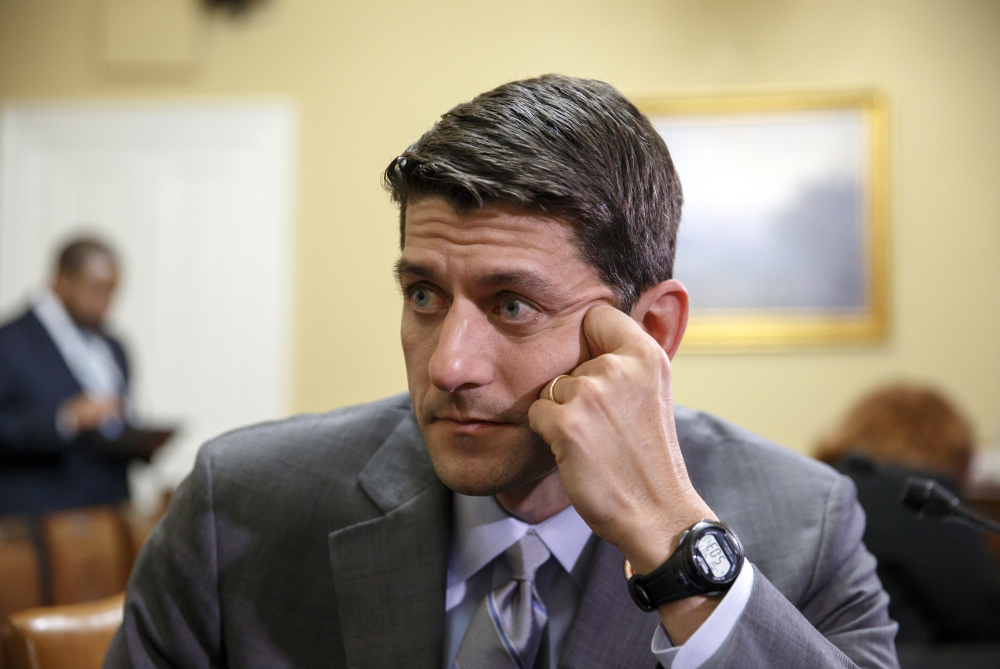WASHINGTON — House Republicans rallied behind a slashing budget blueprint on Thursday, passing a non-binding but politically imposing measure that promises a balanced federal ledger in 10 years with sweeping budget cuts and termination of health care coverage under the Affordable Care Act.
The 219-205 vote on the budget outline takes a mostly symbolic swipe at the government’s chronic deficits. Follow-up legislation to actually implement the cuts isn’t in the offing. Twelve Republicans opposed the measure, and not a single Democrat supported it.
The measure passed after a three-day debate that again exposed the hugely varying visions of the rival parties for the nation’s fiscal future. Republicans promised a balanced budget by 2024 but would do so at the expense of poor people and seniors on Medicaid, lower-income workers receiving “Obamacare” subsidies, and people receiving food stamps and Pell Grants.
Democrats countered with a plan that would leave Obama’s health care plan and rapidly growing health programs like Medicare intact, relying on $1.5 trillion in tax hikes over the coming decade to bring deficits down to sustainable but still-large levels in the $600 billion range.
The GOP plan, by Budget Committee Chairman Paul Ryan, R-Wis., would cut more than $5 trillion over the coming decade to reach balance by 2024, relying on sharp cuts to domestic programs, but leaving Social Security untouched and shifting more money to the Pentagon and health care for veterans. It reprises a controversial plan to shift future retirees away from traditional Medicare and toward a subsidy-based health insurance option on the open market.
While staking out a hard line for the future, follow-up legislation is likely to be limited this year to a round of annual spending bills that will adhere to a bipartisan budget pact enacted in December. But the Ryan plan does paint a picture of what Republicans would attempt if they claim the Senate this fall and the White House in 2016. Its cuts to entrenched benefit programs like Medicare and Medicaid, however, would be difficult to pass even if Republicans gained control of both the House and Senate in this fall’s elections.
Republicans say the tough cuts they promise would strengthen the economy because less government borrowing would boost savings and investment. And they say it’s simply unfair to saddle future generations with mountains of debt.
“The sooner we tackle these fiscal problems, the better off everybody is going to be, the faster the economy grows, and the more we can guarantee that the next generation inherits a debt-free future,” said Ryan.
Send questions/comments to the editors.



Comments are no longer available on this story